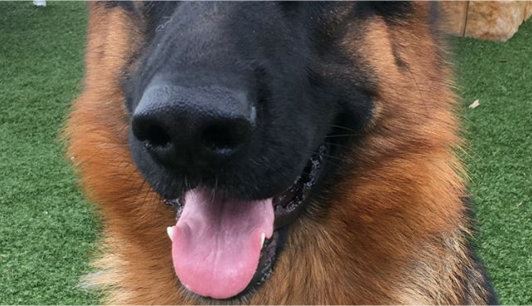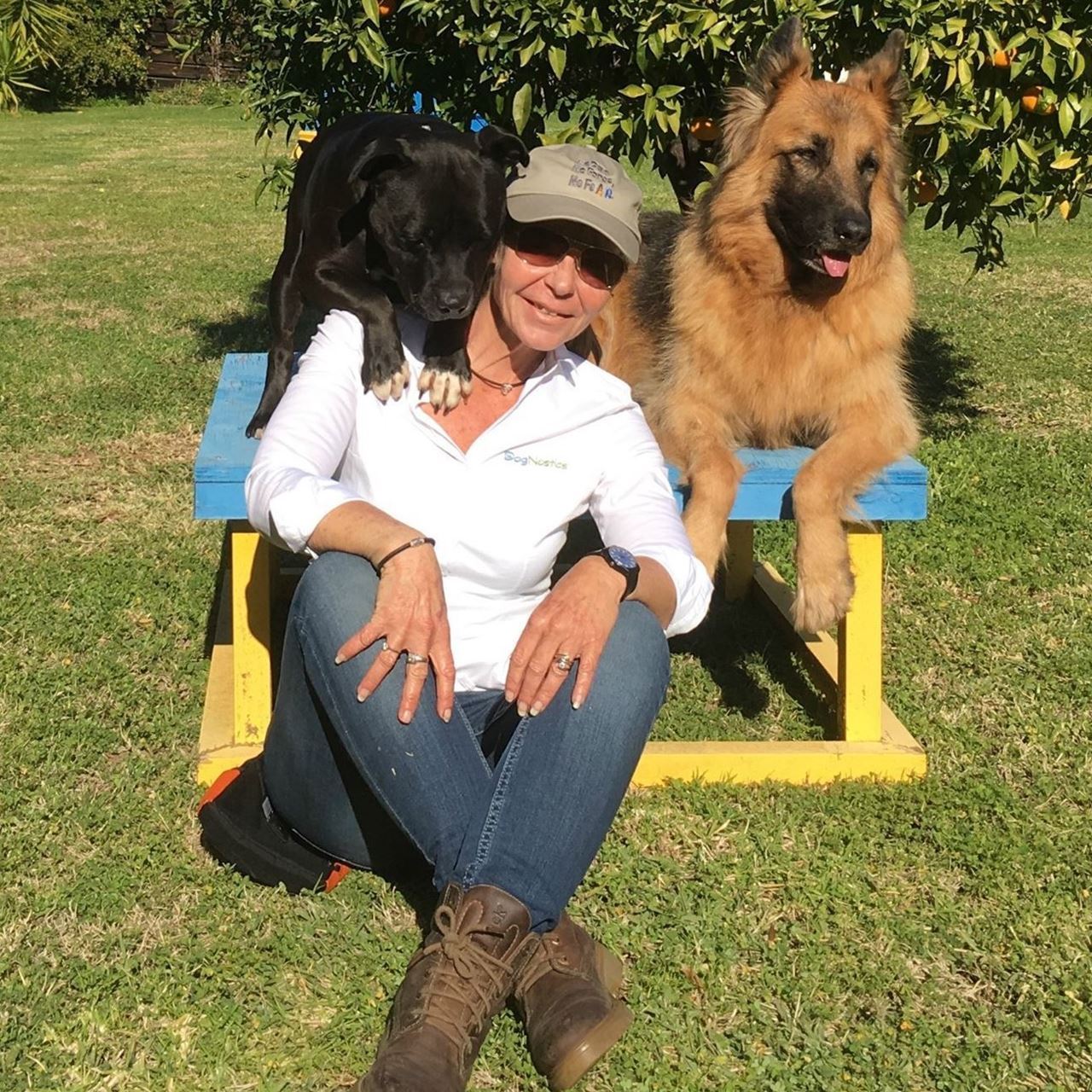Become a Certified “Fun Scent Games” Instructor!
Updated, Improved & New Learning Platform
Earn Your DN-FSG1
Approved Continuing Educational Units
PPAB 4, CCPDT 3, IAABC 2
Presented by Louise Stapleton-Frappell

On Demand Viewing - Start Your Course as Soon as You Register!
This is fabulous Certification Program that provides you with the tools, skills and knowledge to run Fun Scent Games classes. You will learn all about canine olfaction and scent games, along with the what, how and why of operating a successful Fun Scent Games class.
Offering "Fun Scent Games" group classes, private classes or workshops will broaden your service offerings as well as helping to build client loyalty and supporting the needs of your pet owning community.
Dogs have an amazing natural scenting ability. Dogs participating in your Fun Scent Games classes will have fun, build confidence and burn lots of mental and physical energy!
Level One Fun Scent Games Instructor Program Learning Objectives:
- Canine Olfaction history and scientific facts
- The training environment, philosophy and methodology
- Effects of air current
- Scent contamination
- Detection thresholds
- ORNs
- Olfaction streamlines
- Scent discrimination
- Canine scent capability
- Target odors and individual scents
- Scent amounts & fringing
- Appropriate training equipment & handling
- How to play, building criteria and areas of reinforcement
- Reading dogs during the "find"
- Recommended course curriculum
Upon Successful Completion, You Will Receive:
- A DogNostics Instructor Certificate DN-FSG1
- A Certification Badge to display on your website
- A listing on the DogNostics Fun Scent Game Instructor Registry
- A PDF copy of the Course Curriculum
- A student Certificate for you to co-brand to provide to your “Fun Scent Games” students
- Advertising copy describing the program for your website
- Artwork for a promotional 8.5 x 11 flyer
- Access to the DogNostics Student Common Room - A Closed Facebook Group where DogNostics students can network with each other, exchange ideas and ask questions
- Mentoring Support through the DogNostics Faculty Members
- The Total Program cost is only $130.00. You will see a full return on your investment after one group class!
Please Note:
Program Certification
1. Attend the online course lessons
2. Successful completion of your open-book on-line lesson quizzes
3. The submission of 6 short 30 second videos to demonstrate your mechanical competency in the key scent dog training skills
Louise Stapleton-Frappell - B.A. Hons, PCT- A, PCBC-A, CAP3, CTDI, DN-FSG, DN-CPCT2, CWRI

Louise is a partner and faculty member of DogNostics Career Center and board member of The Pet Professional Guild. A professional canine trainer and behavior consultant – accredited via the Pet Professional Accreditation Board, Louise is the regional coordinator of Doggone Safe in Spain, the membership manager of The Pet Professional Guild British Isles and the owner and head trainer of The DogSmith of Estepona.
Louise Stapleton-Frappell’s experience, her background as a teacher and her impressive pet industry credentials means she is uniquely qualified to share her skills and knowledge with both the public and pet industry professionals. Louise gained her CAP3 with distinction and holds verified certification in Animal Behaviour and Welfare (Edinburgh University) and Dog Emotion and Cognition (Duke University). Louise’s professional credentials also include: Certified Trick Dog Instructor, Certified Whistle Recall Instructor, Level Two Certified Pet Care Technician, and Certified Fun Scent Games Instructor. Louise is proud to be a Pet Dog Ambassador Instructor and Assessor, a programme that acknowledges the hard work and commitment that guardians and their dogs undertake to make their shared lives enjoyable.
Louise is the creator and instructor of the DogNostics Dog Trainer Certificate Course; Dog Trick Instructor Program; Fostering Collaborative Care Program; Walk This Way Instructor Program, co-author of The Top Ten Dog Training Knowledge Concepts and the instructor and assessor of the DogNostics Fun Scent Games Instructor certification courses
Louise has published numerous articles on dog training and dog behavior and is also the published co-author of the following titles, A Lexicon of Practical Terms for Pet Trainers and Behavior Consultants and Pet Training and Behavior Consulting: A Model for Raising the Bar to Protect Professionals, Pets and Their People.




